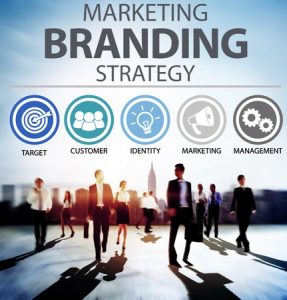
When we think of successful branding, certain images automatically pop into our minds. For example, consider MasterCard’s intersecting circles, McDonalds’ golden arches and the NBC peacock. These universally recognized logos are perfect examples of successful and even iconic branding. While these examples represent B2C companies, it begs the question: Can B2B companies achieve the same level of brand recognition and the resulting benefits?
Due to the more complex nature of the B2B buying process, marketing within the B2B space has a unique set of challenges. The purchase motivation is based in logic and expertise with multiple levels of stakeholders. In turn, this changes the selling process and therefore the marketing initiatives. Decisions are highly value-driven, based on specified budgets, consultative relationships and long-term investments. In many opinions, brand plays a much smaller role in B2B marketing because the expert decision makers won’t be swayed by sleek design and recognizable logos. But is an iconic logo all there is to branding? Definitely not. In fact, if your organization is struggling to attract and retain customers, a sleek logo won’t fix it.
Even more important than catchy taglines and recognizable trademarks is a company’s reputation. What sense do customers get about the success of a firm before doing business with them? Can they trust their credibility? Was the name and expertise recognizable? To what extent did their reputation precede them? This all translates to the company brand.
Does Content Speak for Itself?
In the B2B marketplace, content marketing is effective in proving expertise and trustworthiness. In fact, 91% of B2B marketers use content marketing to promote brand awareness. Case studies, white papers, press releases, blogs and social media all contribute valuable content to demonstrate proficiency in the field. However, the words don’t always speak for themselves. An effective brand supplements fact-based content with a sense of honesty that compels the reader to trust the author, interact with the company, or simply read the subject matter in the first place.
Branding is a Promise Delivered

While B2B decision makers may like to think they operate solely in a value-driven environment, people are still people, and emotion will always make an entrance. Price and product are still the most highly ranked factors in B2B purchase decisions, but brand is ranked third. A strong reputation is certainly a critical factor, but the decision maker’s initial reaction to a name they recognize is founded in emotion. That first impression has a greater impact than we think: research from McKinsey shows that B2B companies with strong brands outperform weak ones by 20 percent.
The bottom line is that a company’s brand is held in the hearts and minds of its customers, employees, vendors and partners. Think of branding as a “promise delivered” both internally and externally. It is everything you do, the commitments you make and how you deliver on those promises. Every interaction is a brand-building opportunity and will either strengthen or weaken your brand in the mind of your customer. When executed successfully, branding results in respect, appeal, loyalty and value. Ultimately, these benefits translate into profits and long-term value.

